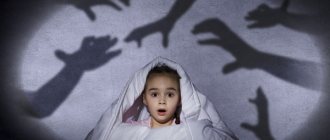Visiting the dentist is a huge stress for many people. Those who experienced Soviet dentistry experience particular fear: impolite doctors, treatment without pain relief or with low-quality anesthesia. Anxiety before taking it often begins in childhood and can develop into a real phobia.
“Dental phobia, odontophobia, dentophobia - there are many terms to describe the unnatural fear of dentists. It is in Russia that it is so pronounced. This is probably due to Soviet medicine with scary dental chairs in a row and old drills.” O. A. Rozhkova, dentist-therapist at the DENTA clinic
However, according to statistics, about 80% of the European population and 15% of residents of industrialized countries experience discomfort before visiting the dentist.
Causes of dental phobia
The exact cause of dental phobia has not been determined to this day. However, there is a clear belief that fear arises against the background of ongoing changes in the central nervous system. And:
- Dentophobia appears against the background of dental trauma in childhood. Fear that was experienced in the past cannot let go of a person in the present.
- The disease seems to be inherited. Usually, if parents suffer from dental phobia, children in most cases inherit this fear from them. Emotional fear of the dentist becomes a family phobia.
- Dentophobia affects people who have always experienced attention deficit. They are usually withdrawn or, on the contrary, have increased hyperactivity.
- The disease causes stress experienced, which has acquired a chronic form or neurosis.
- Dentophobia becomes a consequence of the resurfacing of past painful manipulations in the memory.
- Stories from relatives, friends, and acquaintances about improper and unqualified treatment from dentists lead to illness.
- Fear arises against the background of a very high sensitivity threshold.
- A state of increased anxiety leads to fear of the dentist's action.
- Dentophobes suffer from frequent panic attacks.
- A person’s consciousness is influenced by the negative impact of social networks and the Internet in general, where terrible videos about dental treatment are often posted.
- A person is unable to tolerate the sight and smell of blood.
- Consequences of improper upbringing (in some families it is customary to scare children with the dentist).
- Dentophobes often suffer from a fear of any doctors, not just dentists.
- A person with bad teeth understands that he has already delayed treatment and will have to treat his entire mouth. Therefore, he is terribly afraid of this long and painful procedure.
- A dental phobe may experience a fear of contracting a foreign disease (HIV, hepatitis) through tools.
- He often experiences an absolute feeling of helplessness.
- A dentophobic person has no control over his emotional states.
- Any medical intervention causes fear.
- The presence of a disease such as vegetative-vascular dystonia.
- Fear of dental instruments, leading to gag reflex and choking anxiety.
Dentophobia is not only a problem for patients. This phenomenon also applies to doctors, who must decide what to do with a person who needs to undergo some kind of medical procedure (for example, remove a nerve or pull out a rotten tooth), but he is deathly afraid to sit in a dental chair.
A good surgeon, therapist or dental technician will first talk with the patient to find out the level of his fear, and will also listen to what specifically worries the person and what his phobias are associated with. He will explain in detail what this or that procedure is called and what its essence is.
In general, modern dentistry is aimed at maximizing stress reduction in people when visiting the dental office. For this they widely use:
- A background of light classical music or natural noises that promote relaxation and calm.
- Some clinics are equipped with video glasses, thanks to which the patient can be distracted by watching an interesting film while the dentist is working.
- In special cases, dental treatment under anesthesia is used.
Cases of severe dental phobia are corrected by a psychotherapist using various therapeutic techniques.
- Initially, you need to treat going to the doctor as a normal and natural process. Teach your child that you need to take care of your teeth from childhood. Do not exaggerate the seriousness of the manipulations that will be carried out in the office.
- The first contact between the dentist and the baby is very important. You need to establish a friendly understanding and show your good nature.
- The doctor can give you a light tour of the office and tell you what tools are used and what they are used for, why dental treatment is important and how you can maintain their health for many years.
- Young patients will be distracted by a cartoon or some other playful moments during or before treatment.
- If any unpleasant procedures are expected, it is better to undergo pain relief. In this case, it is advisable to use not an injection, but another available analogue.
To stop being afraid of the dentist, you must first understand the reasons that cause this fear. Such reasons include:
- vivid childhood memories when a visit to the dentist was accompanied by pain and the sounds of a drill;
- panic fear of just the sight of dental instruments;
- fear of feeling pain, fear of the sight of blood
These main reasons can be supplemented by indirect ones: people are afraid of medical errors and expensive treatment, afraid to show their teeth to an unknown person, and feel weak and helpless in the dental chair.
To stop being afraid of the dentist, you need to understand that the doctor is not our enemy, but a friend, and that treatment is not torture, but a process of getting rid of what torments us.
If you do not have a regular attending physician, try to choose a cozy clinic for treatment, located close to work or home. Read reviews, ask your friends - maybe they will advise you on a suitable option. Surely among your friends there are those who were treated by our dentists! You can find out about our doctors on the Internet, not only on our website.
The dentist is your assistant and his goal is to help you get better. Do not doubt the dentist's competence. A dentist removing a healthy tooth is a fantasy story; it simply doesn’t exist! On the contrary, modern dentistry offers so many different treatment methods that the doctor will choose the one that is right for you.
Tell your doctor that you have a fear of the dentist and dental treatment. In medical practice, this is a standard case, and each doctor has his own approaches to “problem” patients. Someone never stops joking to relieve the patient’s tension, and in the company of such a doctor you feel light and joyful. Some doctors turn on a calm background music and speak softly and delicately.
Dentophobia applies to both adults and children. Each of these population groups has its own reasons for the development of the problem. In adults this occurs due to:
- Bad appointment at the dentist. After visiting an inexperienced, rude or careless dentist, you don’t want to feel pain and trouble again. Overcoming a phobia is not very difficult.
- Fear of blood and white coats. Often, during the treatment of dental diseases, blood is released from the oral cavity; the patient may faint at the reception only at the sight of it. Learning to go to the doctor is possible only after a course of treatment with a psychologist.
- Fear of pain that occurs during treatment. People with a high pain threshold are afraid of even the slightest pain. To them it seems piercing.
- Psychological abnormalities. There is a category of sick people who have a pathological fear of the hospital and people in white coats. In this case, you need to undergo treatment with a psychotherapist.
- Reluctance to show advanced caries to the doctor, for fear of causing his negative reaction. You shouldn’t be afraid of this - doctors examine many oral cavities every day, and you can hardly surprise them with anything.
- Women do not always agree to see a male doctor. They don’t want to lose their appearance and lie with their mouth open.
- Suggestions that visiting the dentist is very scary. Usually this is driven into the head after communicating with friends, neighbors, and loved ones, who vividly describe how painful it was for them and how poorly the procedure was performed.
Boy at the dentist
Children's fear of dentists has almost the same reasons. However, in children the psyche is less stable, and this condition is more difficult to deal with. Every child from the age of six months needs to visit a dentist as a preventive measure, since baby teeth are not as strong as molars, and children more often eat sweets and are susceptible to the development of caries. The main causes of childhood dental phobia are:
- Too frequent visits to the dentist and treatment. This usually happens because children don't brush their teeth well. Then problems arise that require treatment.
- There are parents who scare their naughty kids with evil dentists who will come and pull out all their teeth for bad behavior. You shouldn’t do this - at a young age, imagination is well developed, after which it is difficult to convince a child otherwise.
- Sick children, as a rule, are more afraid of visiting a clinic or hospital, since they already know that an unpleasant manipulation awaits.
- The appearance of the drill for small patients seems terrifying.
- Just like in adults, in childhood it is possible to develop psychological deviations in which children are afraid of blood and white coats, but they cannot always explain this correctly.
- An increased pain threshold makes you fear dentists, especially after visiting a doctor and undergoing several similar procedures.
Important! Children who are busy watching cartoons during treatment are more able to tolerate therapeutic procedures.
We suggest you familiarize yourself with: Computed tomography of the jaw, a picture of the teeth
In any case, you should not leave your teeth in a sick state. This entails many consequences and complications. How to calm yourself before going to the dentist? Before visiting a doctor, you can carry out several manipulations that will alleviate fear:
- Calming, sedative drugs. They will cheer you up, relieve anxiety and fear. They are produced on the basis of herbs, as well as with a chemical composition. They can be prescribed by a psychologist at an appointment or purchased without a prescription.
- Conclude an agreement on treatment after the sedation procedure.
- Make an appointment with a dentist 14-20 days in advance, so that during this period you can prepare yourself for visiting a doctor.
- Study the procedure process, reviews about the clinic and the doctor in advance.
- Make an agreement with your doctor about listening to music during treatment or watching TV programs.
- Talk to friends who liked the specialist’s appointment and were completely satisfied with the work.
- Visit a psychologist or undergo a full course of treatment for dental phobia.
Important! The most effective option is to find a way to overcome the phobia. This will help you to visit the clinic calmly in the future.
Woman covering her mouth
Treatment methods
Diagnosing dental phobia is not difficult. A patient with such an illness will immediately clearly show all the characteristic symptoms through his behavior and reaction to the dentist’s actions. There are two methods of treating fear of dentists: medication and psychotherapy. It is advisable to combine them to achieve maximum effect.
Use of medications . The bottom line is to take antidepressant drugs that suppress feelings of fear and anxiety due to the normalization of serotonin production in the brain. Only a doctor can prescribe a course of taking the drug after examining each individual patient. Good results in the treatment of various phobias, including dental phobia, have been obtained using Tsipramil.
The course of treatment is about three months. After the first three weeks, there is already a decrease in anxiety and fear. The drug is not addictive when taken for a long time. Drug treatment is prescribed for severe forms of phobia.
Symptoms of dentist fear
Fear of dentists is a phobia, called dentophobia. It occurs equally often in children and adults. Such patients experience:
- panic attacks;
- fainting and loss of consciousness;
- rapid breathing;
- high or low blood pressure;
- nausea, vomiting;
- dizziness;
- fear of going into the doctor's office, even if the pain is unbearable;
- enduring pain in the hope that it will go away on its own;
- children may not admit their problem for a long time;
- confused speech;
- cardiopalmus;
- feeling of fear, horror.
Symptoms and external manifestations
There is simply a fear of dentists, and there is a real phobia. A patient with fear can control his behavior; rational arguments and arguments ultimately defeat fear.
Patients with dental phobia (dental phobia) categorically deny the need to visit the dentist's office. In the dental chair, they can perform completely illogical actions, show aggression and even lose consciousness.
The symptomatic picture of dental phobia is as follows::
- tension of all muscles of the body;
- a sharp increase in sweating;
- enlarged pupils;
- Strong headache;
- inability to control the movement of limbs;
- signs of aggression with physical manifestation.
How to stop being afraid of the dentist?
How not to be afraid of the dentist? This is the most important question for a person suffering from dental phobia. It becomes especially acute when it is no longer possible to delay a visit to the dentist.
Advice from a psychologist will tell you how not to be afraid of the dentist and overcome dental phobia forever.
- First of all, you need to figure out what exactly you are afraid of. To do this, you can create a table that will help you determine the type of fear. In the first column you need to enter a possible version of the phobia, and opposite each item put a number from 1 to 4, where a four will correspond to the concept “I’m incredibly afraid,” a three will correspond to “I’m very afraid,” a two will mean “I have moderate fear,” and one will correspond to “not I'm completely afraid." For example:
Fear Option Fear level from 1 to 4 I'm afraid to remove a tooth 4 I'm afraid to drill my teeth 3 I'm afraid of an injection at the dentist 2 I'm afraid to remove the nerve from a tooth 2 I'm afraid of anesthesia 1 I'm afraid to pull out my wisdom teeth 4 I'm afraid to get a dental implant 2 I'm afraid to remove a tooth with a cyst 4 I'm afraid to remove tartar 1 I'm afraid to treat my front teeth 2 It is necessary to carry out such a test in a calm environment, honestly writing out all your fears.
- The second step is to analyze the resulting list and try to figure out what exactly scares you in each specific case and what could have caused this phenomenon. For example:
- I'm afraid to pull out a tooth because I'm afraid of the pain. I already had a tooth removed once without anesthesia, and it was very painful.
- I am afraid when my teeth are drilled because the sound of the drill working is unpleasant to me. As a child, my parents always scared me with her.
- Often, a preliminary consultation with a dentist can help overcome fear of dentists. Most clinics provide their patients with the opportunity to communicate with a surgeon or therapist, at whose appointment existing dental problems are discussed and ways to eliminate them are discussed. You can ask the doctor all your questions, as well as ask for clarification regarding all diagnostic and therapeutic measures. Anesthesia issues are also discussed, as well as possible alternative therapeutic techniques. A trusting relationship with a doctor largely determines success in the fight against dental phobia. If the patient trusts the attending physician, then he will more quickly relax in the dental chair and cease to feel fear.
- Don't put off visiting the dental office. Over time, the fear may not become less, but the condition of the teeth will be much worse.
- Before visiting your doctor, try to get a good rest and sleep. The night before, you can take glycine or use folk remedies with a sedative effect (infusion of valerian or motherwort). Before visiting the dentist, do not plan any important events that could cause additional stress.
I am afraid to remove tartar because I am ashamed that my teeth are very neglected. Last time, the dentist lectured me for a long time and reproached me for not taking care of my health at all.
Often such a simple technique is enough to get rid of the fear of the dentist. If it is impossible to deal with the problem on your own, then you can visit the doctor with this list from whom you plan to undergo treatment and get advice regarding your fears and their reality.
The very first and most important point that allows you to overcome your fear of dentists is to understand the cause of such a problem. Each of those suffering from dental phobia has its own personality, but in general, the factors that provoke the phobia are quite similar.
- Extremely negative previous experience with dental treatment. Representatives of the older generation probably remember the “Soviet standards” of providing dental care: a roaring drill, minimal anesthesia (or even its absence), an unpleasant taste in the mouth after arsenic. At the same time, treatment of one tooth most often took place in several visits, which also did not give patients positive emotions. All this contributed to the development and strengthening of fear of the dentist, and subsequently to the formation of severe phobias.
- At the present stage, dentistry offers patients a huge number of new services, many of which have foreign and incomprehensible names (for example, Opalescence, White light or Zoom). It is this uncertainty that makes a person afraid to go to the dentist. Trying to find information on the Internet can often worsen the phobia due to negative reviews and comments from “experts” that frighten patients on dental resources.
- Many people are afraid to go to the dentist because of bad teeth. This fear is often fueled by some doctors who criticize the patient’s attitude towards his own health. The result is a vicious circle: the worse the condition of the teeth, the more pronounced the phobia becomes.
- Some women are afraid to go to a male dentist. This is due to the fact that representatives of the fair sex are embarrassed to look funny with their mouths wide open. In addition, a visit to the dentist's office implies restrictions on the use of decorative cosmetics, which also confuses some ladies.
- If a child is afraid to have his teeth treated, then in some cases the cause of this phenomenon should be sought in the behavior of the parents. Moms and dads (who sometimes suffer from dental phobia themselves) tell their children that if they misbehave, the doctor will pull or drill their teeth. This is done so that the child sits calmly in line in front of the dentist’s office. As a result, children begin to fear even the simplest and most harmless dental procedures. And neither a teenager nor an adult can overcome such fear, rooted in childhood.
We suggest you read: How to remove plaque from teeth at home, how to clean teeth from yellow and brown plaque
Dealing with the fear of visiting the dental clinic is both simple and complex. It’s simple because, having identified the main cause of fear, it’s twice as easy to stop being afraid of the dentist. It is difficult because it requires willpower and self-improvement on the part of the person himself.
Thus, all patients of our Dentistry on Shchelkovskaya (not far from the Shchelkovskaya metro station) are always aware of what and how they will be treated before starting treatment. The dentist talks about painkillers, technologies that do not injure teeth, as was the case before, about filling materials that last for decades with proper care.
Our patients are always aware of the cost of treatment and discuss the possibility of installment payment with the doctor. Light, pleasant music plays in our offices, you will be completely calm and the treatment will take place without complications, fear and pain.
Take the first step towards defeating dental phobia, make an appointment with a dentist by phone or through the online appointment form.
To stop being afraid of the dentist, you need to familiarize yourself with the state of modern dental science. This is a very effective technique - to find out in detail what scares you. Then a visit to the doctor will no longer seem threatening and scary.
First, familiarize yourself with the products that dentists use today for local anesthesia. They begin to act almost immediately and completely dull the pain. Even if there is surgery, you will not feel it.
Secondly, the range of medicines and materials that are used in dentistry today has expanded significantly. Today, it is absolutely safe to relieve any pain from treatment of teeth and gums - the doctor himself will prescribe the drug you need. For filling and dental treatment, modern materials are used, which are not rough, like the old ones, but safe and comfortable.
The greatest fear of the dentist among patients is caused by procedures performed in the dental cavity. It is they who are associated in people’s minds with the terrible sound of a drill, with sharp and uncomfortable instruments. In fact, things are completely different in dentistry today. Drills are no longer so noisy, and instruments are constantly being improved and modernized. Throw away the stereotypes of ten years ago and feel free to make an appointment with the dentist.
Dental treatment is an unpleasant procedure. Therefore, most people go to the dentist without much enthusiasm. But there are patients who experience panic fear of this doctor. Only acute pain in a tooth can force them to make an appointment.
In order to once and for all understand the question of how not to be afraid of the dentist, such people should find out for what reasons fear of the dentist arises, and what methods exist to combat this type of phobia.
Most people don't know what fear of dentists is called. In psychology, there is a concept - dentophobia (or dental phobia). People who feel panicky fear of the dentist are classified as suffering from this type of phobia. But anyone who is afraid to go to the dentist should not immediately register themselves as sick. If a person is able to control their feelings of fear, they do not have a clinical diagnosis.
A real dental phobe can lose consciousness even at the sight of a syringe. During treatment, he physically interferes with the doctor, defending himself, as they say, with his hands and feet. Such a patient may experience severe shortness of breath or high blood pressure.
According to statistics, about 10% of the Russian population suffers from dental phobia, and approximately 2% of Russians have never visited a dentist.
Children experience the greatest fear of the dentist, but with age the fear goes away. But for people over 40-50 years old, strong emotional experiences in front of the dentist’s door can arise due to negative memories of dental treatment using Soviet methods, in particular, old-style drills.
Types of pathology
There are several types of dental phobia, the elimination of each of which requires a special approach:
- Acquired. This is the most common form, which develops as a result of negative experiences experienced in the past. If a person had to endure severe pain or a long process of dental treatment, then during the next visit to the doctor, such a patient may develop dental phobia.
- Congenital. It develops regardless of the presence or absence of negative experience. This form appears due to an unreasonable fear of filling or tooth extraction. If the first treatment for such a person is painless, then the phobia may go away. However, in some patients, even the absence of unpleasant sensations during treatment can only lead to a worsening of the situation.
- Imaginary. Most often it occurs in people who have never been treated by a dentist, but have heard about negative experiences from friends, relatives or the media. Most often, such persons have a wild imagination and incorrectly perceive the entire treatment process. As a rule, to eliminate a phobia, it is enough to overcome your own fear once and make sure that there is nothing terrible about visiting the clinic.
What is the cause of fear?
Why are people afraid of visiting the dentist? The reasons may be different:
- Fear acquired during life
is formed against the background of negative experiences of past visits to the doctor. This is the most common case. - A phobia generated by imagination
is based on far-fetched fears: stories from friends, things seen in movies, etc. - Hereditary fear
is an attempt to avoid pain in any of its manifestations. The desire to protect ourselves is embedded in us at the genetic level: the mouth is a sensitive part of the body, and therefore it seems to a person that any invasive manipulation in the mouth will be very painful.
A psychotherapist will help you get rid of severe dental phobia: you will be able to overcome the pathology only after hard work on yourself.
According to statistics, only every fifth person treats visiting the dentist as calmly as going to the cinema or the hairdresser. So what should you do to visit a specialist without fear?
How to overcome fear of the dentist - a view from the other side
How not to be afraid of the dentist? It is possible to overcome a phobia, just like other fears. To do this, they resort to psychological techniques. The degree of the disease varies; the greater the fear, the more difficult it is to get rid of it. There is no need to panic if you cannot overcome your fears. Any treatment requires patience and time. The treatment process is different for children and adults. An adult body tolerates the administration of drugs more easily, and the psyche is more stable.
A man is afraid of a doctor
Children's phobias are more difficult to cure. For example, sedatives, painkillers and sedatives should not be prescribed to young children. Patients 10, 11, 12, 13, 14, 15 years old can take such drugs according to their own regimen. From the age of 15, tablets are prescribed according to the adult regimen. It’s difficult to explain to kids how not to be afraid of the dentist. In this case, you can help by resorting to psychotherapy.
There are several options for overcoming fear:
- Selection of a permanent pediatrician, to whom the child will get used and will calmly go to appointments.
- Long conversations with the child about how dental treatment is a mandatory procedure, and you need to learn to overcome your fear.
- Watching cartoons during procedures significantly reduces fear.
- Many dentists try to distract their patients with interesting games.
- A few hours before the appointment, they suggest drinking herbal tea based on chamomile, mint and valerian to calm the child’s anxiety a little.
- Instilling in the child that dentists are good and will not cause harm.
Important! You cannot intimidate or try to bribe a child; this does not always work. In the future, he will have to pay for each tooth healed. If you intimidate a child too much, he will simply stop talking about his pain.
We invite you to read: The smell of acetone from the mouth of an adult: causes, diagnosis and treatment
An adult always evaluates his behavior better than children. He understands that treatment is necessary, but the mere thought of visiting a dentist causes fear and anxiety. How not to be afraid of the dentist? How to stop being afraid of the dentist forever? To correct this, you need to take measures to treat the phobia:
- If you are afraid of blood and white coats, you need to consult a psychologist; only he can find the true cause and eliminate it.
- Take anti-anxiety tablets before visiting the dentist.
- During the appointment, ask to listen to music through headphones to distract yourself and not watch the process.
- Finding a permanent dentist will help you avoid fear.
- Having a TV in front of the dental chair will help you not think about the pain.
- The administration of painkillers causes complete numbness of half the jaw. During the treatment of holes, the patient does not feel anything.
- If you are afraid of death after an injection, it is recommended to find out in advance about the presence of allergies to painkillers used during the procedure.
- Use of sedation. After the procedure, the patient becomes calm and calmly follows all the dentist’s instructions. This allows the entire mouth to be treated at the same time, without having to make a repeat visit. Used in cases where nothing helps.
- If sedation has no effect, then general anesthesia is used. However, it is used only when absolutely necessary, if dental disease poses a danger to the health and vital functions of the patient.
Woman screaming at the dentist
What causes dentophobia: reasons
How to overcome fear of the dentist? The first step to freeing yourself from dental phobia is to study the possible causes of the disorder. In medical circles there is a complete understanding of the etiological causes and mechanisms of development of this disease. Doctors are convinced that this neurotic disorder is based on three “pillars”:
- genetic predisposition;
- biological changes in the functioning of the body;
- exposure to a trigger - a factor that gives rise to pathology.
How to overcome your fear of dentists? It is necessary to be careful and attentive to the mental health of people who have a family history of phobic anxiety disorders. Scientists have established a connection between the occurrence of dental phobia and the presence of mutations in the genome, while the defective gene is transmitted from ancestors to descendants on the maternal and paternal lines.
Females born to women who suffered from and were treated for phobic anxiety disorders during the first trimester of pregnancy are especially at risk of developing pathological fears. At the same time, the level of threat for males whose parents experienced panic is much lower.
How to overcome your fear of the dentist? Patients with dental phobia do not need to blame themselves for their inability to overcome fear on their own, since phobic anxiety disorders are often caused by malfunctions in the central nervous system. It has been established that the trigger for the development of pathological anxiety is a disturbance in the synthesis of norepinephrine.
Another suspected biological culprit for dental phobia is a lack of serotonin. The neurotransmitter serotonin “guides” the sensitivity of the body’s pain receptors. With a deficiency of this neurotransmitter, a person perceives pain very intensely, even weak irritation of the receptors causes severe pain.
Before overcoming your fear of the dentist, you need to understand that unfavorable heredity and biological abnormalities are just the foundation for dental phobia. The presence of these factors does not necessarily precondition the development of the disorder. The start of pathological fear is given by the adverse effects of external (exogenous) factors.
The reason for the formation of dental phobia are facts from a person’s personal history: both those circumstances that he can consciously describe, and those events that remain beyond the threshold of conscious perception. Moreover, the roots of a traumatic event often go back to distant periods of the past.
The following factors contribute to the development of dental phobia:
- negative reviews from people about the results of dental treatment published in the media;
- fear of infection and contamination, fear of incurable diseases that are present in humans due to illiteracy and ignorance of the ways of spread of viruses and bacteria;
- transfer to dental workers of negative experiences of contact with other medical personnel;
- an irrational fear of being temporarily helpless, a person’s global desire to keep all current events under control;
- hostility due to the need for a stranger to touch the body.
The people who are most afraid of dentists are elderly and senile people, who have seen the times when fillings and tooth extractions were carried out using outdated equipment, without the use of anesthesia, which was accompanied by severe pain. The painful sensations experienced are firmly rooted in the subconscious, forming a protective mechanism for preventing pain - intense uncontrollable fear.
How not to be afraid of dentists? To prevent any neurotic and psychotic disorders, it is necessary that the process of personality formation proceed in favorable comfortable conditions. It is often possible to establish a connection between obsessive irrational fear and negative sensations experienced in childhood during dental treatment.
We suggest you familiarize yourself with Cleaning the tongue with hydrogen peroxide
How not to be afraid of the dentist? Every modern person should undergo a dental examination twice a year, without delaying the issue of dental treatment. A common reason for the development of abnormal fear is the subconsciously recorded reluctance of the subject to show the dentist an oral cavity in a disrepair.
This attitude is often formed after the previous incorrect behavior of doctors who behaved tactlessly and rudely when communicating with a client. At a subconscious level, a person has a need to prevent unpleasant criticism. Fear of dentists is just a tool to prevent the recurrence of uncomfortable circumstances.
Working on your fear of the dentist
So, we have introduced you to the basic methods on how to stop being afraid of the dentist. Now your task is to decide to overcome this fear. Spend a little time on what specifically frightens you during the dental treatment process – the type of instruments, the fear of the doctor’s hostility, or the high cost of treatment?
Work with each specific fear, try to analyze it, or even better, imagine it in an exaggerated version. Imagine. That you have come across an evil doctor who does nothing but hurl reproaches at you. Introduced? Naturally, you immediately realized that such a doctor looked like a fairy-tale character.
Fear of the dentist does not go away immediately, but it begins to disappear immediately after your first visit to the dentist. Each subsequent visit to the dentist will be easier and easier for you, and when you see the result - straight, beautiful teeth and healthy gums, you will understand that all your fears were unfounded.
Having successfully overcome your fear of the dentist, you can now help your friends, family and children cope with this fear as well. After all, fighting fears with friendly support is more effective and confident. After treatment in our clinic, you will receive a special invitation for your loved one, acquaintance, friend or colleague to a free dental examination.
Description
This phenomenon is a kind of paralyzing fear that makes it very difficult and sometimes even impossible to visit the dental office.
Just thinking about the dentist causes fear, anxiety, and reluctance to take steps for examination or dental treatment. This anxiety is associated with exaggerated reactions of anxiety and fear, despite awareness of the irrationality of one's own fear and reassurance that dental procedures today are painless and do not pose a threat. People with dental phobia often refuse to visit a doctor, even right in front of his office door. Fear of the dentist can take many forms, from mild anxiety and nervousness to complete terror and even panic attacks.
Haptophobia - fear of being touched
Facts about fear of dentists
Dentophobia has been manifested in people since ancient times. But it got its name not so long ago. There are some interesting facts about fear of dentists:
- Dental treatment has been carried out for more than 1000 years. The first practices existed in ancient Rome. At that time, ether was used for pain relief. They gave it to the patient to smell, after which he fell asleep.
- Hypnotic treatment for phobias is the most effective. It helps the patient forget about his fear for a long time.
- The phobia most often begins in childhood; the cause is a vivid memory of a toothache that a doctor in a white coat tried to eliminate.
- Children's fears are so strong that they are able to invent the most unusual stories just to avoid going to the appointment. For example, in the USA, a teenager went to see a doctor, but the police brought him home because he said that he had been kidnapped so as not to have his tooth treated.
- Fear of dentists is most often an acquired disease.
- Many patients suffer from phobia, almost 20% of the population. Many people try to overcome it on their own.
- Many people may continue to fear the dentist throughout their lives.
- If you do not treat your teeth out of fear, this will lead to complications that can have consequences not only on the face and teeth, but also spread to other organs and lead to death.
What is dentophobia?
Fear comes in different forms.
For some people it is moderate and a person by himself with rational arguments is able to overcome it, calm it down and control it. Others reach the point of real panic attacks in their feelings and even faint at the mere thought of going to the doctor. Scientists call this fear differently - dentophobia, odontophobia or dental phobia. All these are different names for the same phenomenon, when a person, for some reason, is terribly afraid of the dentist and any of his manipulations.
A psychologist, a doctor himself, or a patient can help overcome fear by convincing himself of the necessity and rationality of treatment. First you need to understand the type and intensity of fear, as well as exactly what expected manipulations it relates to.
Fear of dental treatment in adults: methods of overcoming
In fact, dental phobia is treatable; it is important to find the right solution to this problem. Experienced and talented dentists always know how to find the right approach to difficult patients. For their part, people suffering from such fears should also look for ways to avoid them.
What should you do if dental phobia has become a part of a person’s life and does not allow you to put your oral cavity in order? First of all, it is important to convince yourself that it is necessary to treat your teeth; prolonged delay will only worsen the problem. What is typical is that it is regular visits to the dentist that most contribute to getting rid of age-old fear. There are several proven tips for experienced draft dodgers:
- Study all known methods of pain relief, science does not stand still, now, if desired, you can even numb the injection site in the gum, and the patient can be offered a sedative. Long gone are the days when ineffective novocaine was used; the range of modern means of reliable anesthesia is extensive. Not a single good dentist (and bad ones don’t stay in reputable clinics) wants to cause pain; on the contrary, he himself will be interested in pain relief. After all, the absence of pain will make the doctor’s work easier, and therefore will have a positive effect on the result.
- Responsibly approach the choice of clinic and attending physician. A pleasant atmosphere in a medical facility is important! It is quite possible to choose a clinic with a beautiful environment without a strong medicinal smell, queues and crying children. You can agree in advance on a preliminary consultation before treatment, at which you are not at all ashamed to admit your dental phobia. Finding a friendly and professional doctor and establishing trusting contact with him is half the solution to all problems.
- Immediately discuss the cost of treatment, find out all the prices and eliminate fears for this reason. It is unlikely that it will be possible to indicate the exact cost in advance, but at least decide on the price range. For people whose fears depend on the financial component of the process, this will help relieve unreasonable fears in advance.
- Rely on the recommendations of your friends when choosing a doctor. Good competition in this sector motivates dentists to expand their knowledge of psychology and find competent approaches to patients. By putting people at ease, the dentist facilitates the treatment process itself and attracts grateful clients. A visit to such a doctor will save you from many negative aspects.
- Establish contact with the attending physician during the therapy period, stipulate some conventional signs to express your reaction. We should not forget that dentists face such fears all the time; this is not news to them. Only 20% of patients go to the dental office calmly, without fear.
The fear of visiting the dentist should be dealt with in all ways; they are most reminiscent of childhood unreasonable panic and only bring discomfort into our lives. We must try to overpower them, remembering that real doctors want the best for their patients.
Causes of the disease
If you feel the first signs of such a fear, then try not to allow it to escalate, because having brought the body to a real phobia, it will be much more difficult to get rid of it. The tooth itself will not stop hurting and sooner or later you will have to go to the doctor. And the sooner you do this, the easier the whole procedure will be.
We invite you to familiarize yourself with 8 causes of dry mouth and 9 ways to eliminate them.
To help yourself figure out where this fear comes from and how to get rid of it, you need to clearly determine why it arose. There may be the following common explanations for this:
- Previous negative experience with dental treatment. Perhaps the doctor was incompetent and performed sloppy actions, or even used outdated instruments or forgot about such a detail as pain relief. The next time after a difficult and scary procedure, a person will not want to repeat it again.
- Fear that the dentist will blame the patient for neglected teeth, neglect of his health and reproach him in every possible way. For some, reprimand can be more scary and humiliating than the treatment itself.
- If, during pregnancy and birth of a child, disturbances in the production of hormones such as serotonin and norepinephrine are discovered, then throughout his life he will be too anxious about any unusual manipulations that cause pain or discomfort.
- A low pain threshold, increased sensitivity or mental pathologies also affect the presence of such fear.
- Numerous stories from relatives, friends, neighbors, stories in the news since childhood form an insurmountable fear of the dental chair in the child.
- The unknown of what the doctor will do, how it will affect dental health, unclear names and new technologies can make a person wary. It’s much easier when you understand what will happen and what the consequences will be.
- There are also cases when fear is just an aesthetic problem. For example, a woman is embarrassed to visit a male doctor and sit in front of him with almost no makeup and in an awkward position with her mouth open. In this case, the phobia will not be caused by the manipulations themselves and can be treated quite simply - just find a female dentist and establish friendly contact with her.
- In case of fears of pregnant women who have to have their teeth treated during this delicate period, there may be a fear that any procedures, and especially medications and anesthesia, will harm the baby. In fact, today's medicine is able to offer patients medications that are quite safe in this regard, which can also be used during pregnancy. It is much more dangerous to develop dental diseases and ignore them. After all, the infection can quickly spread throughout the body and harm the unborn baby.









